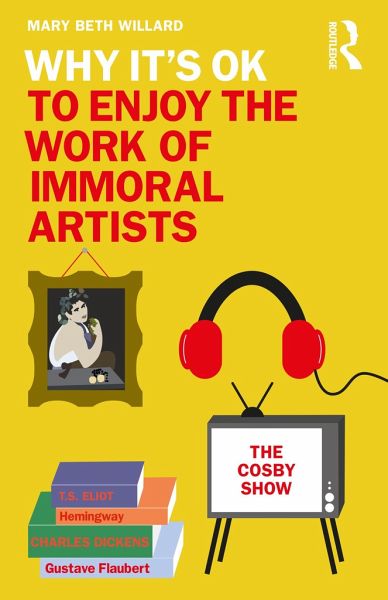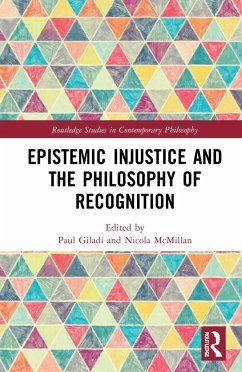
Why It's OK to Enjoy the Work of Immoral Artists
Versandkostenfrei!
Versandfertig in 6-10 Tagen
24,99 €
inkl. MwSt.
Weitere Ausgaben:

PAYBACK Punkte
12 °P sammeln!
The #metoo movement has forced many fans to consider what they should do when they learn that a beloved artist has acted immorally. One natural thought is that fans ought to give up the artworks of immoral artists. In Why It's OK to Enjoy the Work of Immoral Artists, Mary Beth Willard argues for a more nuanced view. Enjoying art is part of a well-lived life, so we need good reasons to give it up.And it turns out good reasons are hard to find. Willard shows that it's reasonable to believe that most boycotts of artists won't succeed, so most of the time there's no ethical reason to join in. Some...
The #metoo movement has forced many fans to consider what they should do when they learn that a beloved artist has acted immorally. One natural thought is that fans ought to give up the artworks of immoral artists. In Why It's OK to Enjoy the Work of Immoral Artists, Mary Beth Willard argues for a more nuanced view. Enjoying art is part of a well-lived life, so we need good reasons to give it up.
And it turns out good reasons are hard to find. Willard shows that it's reasonable to believe that most boycotts of artists won't succeed, so most of the time there's no ethical reason to join in. Someone who manages to separate the art from the artist isn't making an ethical mistake by buying and enjoying their art. She then considers the ethical dimensions of canceling artists and the so-called "cancel culture," arguing that canceling is ethically risky because it encourages moral grandstanding. Willard concludes by arguing that the popular debate has overlooked the power of art to change our lives for the good.
It's of course OK to decide to give up the artwork of immoral artists, but - as Willard shows in this provocative little volume - it's OK to continue to enjoy their art as well.
Key Features
Offers accessible discussions of complicated philosophical topics like aesthetic value, collective action problems, and epistemic justice
Provides a unique perspective and underexplored argument on the popular issue of cancellation
Explores the role of aesthetic value in our lives, including its relation to our ethical decisions and our well being
And it turns out good reasons are hard to find. Willard shows that it's reasonable to believe that most boycotts of artists won't succeed, so most of the time there's no ethical reason to join in. Someone who manages to separate the art from the artist isn't making an ethical mistake by buying and enjoying their art. She then considers the ethical dimensions of canceling artists and the so-called "cancel culture," arguing that canceling is ethically risky because it encourages moral grandstanding. Willard concludes by arguing that the popular debate has overlooked the power of art to change our lives for the good.
It's of course OK to decide to give up the artwork of immoral artists, but - as Willard shows in this provocative little volume - it's OK to continue to enjoy their art as well.
Key Features
Offers accessible discussions of complicated philosophical topics like aesthetic value, collective action problems, and epistemic justice
Provides a unique perspective and underexplored argument on the popular issue of cancellation
Explores the role of aesthetic value in our lives, including its relation to our ethical decisions and our well being














